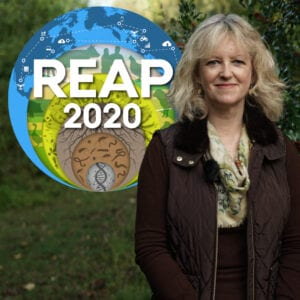“How can we increase farmer adoption of new innovations?” A question that continues to challenge policy-makers, technology developers and the research community, and probably the one the Agri-TechE team is asked most often. So why are there no easy answers to this seemingly simple question?
Dr Belinda Clarke Director of Agri-TechE says that there is significant appetite among farmers for new and improved tools, products and services to help reduce costs, enhance outputs and increase sustainability, and there is certainly no shortage of companies developing novel solutions.
However, as she comments: “As we have learned over the years, it’s more complicated than just a simple introduction between developer and farmer and expecting magic to happen.
“The inability to accurately predict a return on investment in new technologies, issues of trust in new technologies, and the lack of clarity about which will become the “gold standard” solutions are all barriers to adoption.
“Add in the lack of inter-operability of some new tech with existing systems, and the barriers to adoption start to stack-up.”
Creating an innovation ecosystem
To help overcome this situation Agri-TechE ( or Agri-Tech East as it was known) started to bring bring farmers together with researchers and technologists to gain mutual understanding of these types of issue.
Back in 2014, the big issue was a lack of understanding about what farmers wanted and needed in terms of new solutions and the research and innovation communities were eager for audiences with farmers to learn about their challenges, to help inform future development in line with the needs of the industry. So the first REAP conference contained a “Producers’ Panel” designed to provide a platform for farmers to describe their challenges.
This started to create a forum for innovation that placed the end users of the technology at the centre of its development. It has been interesting to see over recent years how collaborations between farmers and technologist have evolved. In addition, how the technologies have changed from point solutions to a particular issue to platforms that support decision-making.
It has become clearer that a more systems approach is required that looks at the interconnections and the ‘big picture’ as well as the minutiae.
At REAP 2020 a number of entrepreneurs that have appeared in previous Start-Up Showcase sessions at the conference have returned with their farmer collaborators to give two perspectives on how the farmer-tech relationship started, grew and any tips for ensuring a successful outcome to adoption of the new tool, product or service.
Precision crop protection
Arable, based in California, has developed a portable weatherstation, Arable Mark 2, which provides localised weather and plant health status in real time via a mobile phone. The company is presenting with one of its US clients and vineyard owner Will Drayton.
In the UK Arable has partnered with xarvio in the UK to combine its hyper-local crop and weather data with xarvio’s powerful crop production optimisation, to support more precise in-field decisions. Xarvio is taking part in the TechHub at this year’s REAP and previewed its xarvio Field Manager at REAP 2019.

One of the UK users is David Hurn, a fenland farmer based near Kings Lynn, he says that precision farming is the future: “As a smaller farmer – having average yields isn’t going to cut it. We need to be at the top of our game, all the time, or we won’t be here.
“I have been very impressed with the Arable weather station and the Arable team. It is a simple system, very easy to set-up and move between fields. It is compatible with the PC and my phone, you don’t need anything complicated to log in or subscribe to and I can share the information from the webpage with my Agronomist.
“Being linked to the xarvio software is very useful, the localised weather data from the Arable Mark ensures the best accuracy from the growth stage and disease modelling in Field Manager. We can then see the spraying windows around that.
“I have found the modelling pretty accurate – it only needs tweaking occasionally, as it uses machine learning. With all the users providing input it will get better and better. “This is the sort of feedback we are giving to xarvio and to Arable Labs and they are responsive. You need to feedback both ways – not just on the problems but also when things are good.
Increase farmer adoption of new innovations
“In a previous blog we have talked about ensuring a win-win situation between farmers and technology developers. And now we will hear first-hand from those who have made it work
“Working closely with farmers can provide mutual benefit, but relationship management is an under-appreciated skill. This Farmer Tech session will provide some interesting insights into how this can be achieved ” says Belinda.
“While there are successful examples, we know as an industry we aren’t there yet with seamless adoption of new agri-tech innovations. But by learning from those who have done it, we might just learn how to do it better.”
Arable, Outfield and Breedr will all be available at REAP 2020 for 1-2-1 chats and are looking forward to discussing collaborations with farmers or industry members at REAP 10th November 2020.







